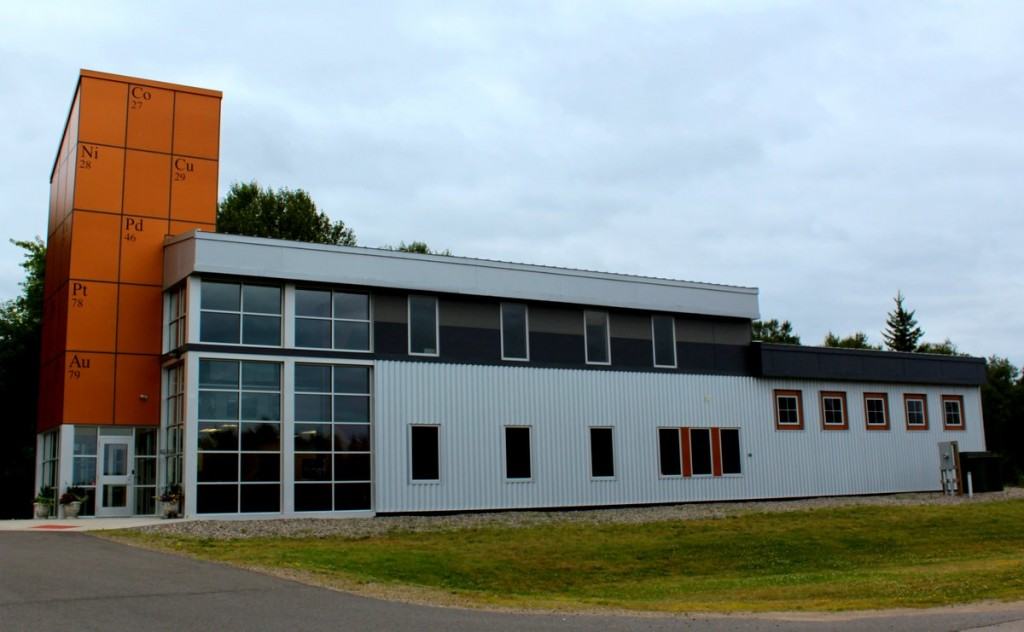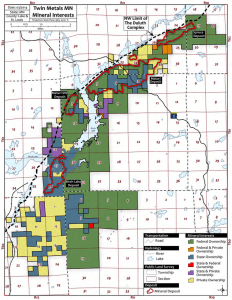

The U.S. Interior Department announced on Dec. 22 that it is reversing a policy prohibiting mining activity in the watershed of the Boundary Waters. The move allows Chilean mining company Antofagasta PLC to continue developing a copper-nickel mine proposal on public lands a few miles from the edge of the wilderness.
The announcement came just over a year after the Obama administration cancelled the leases while the government launched a study of the possibility of withdrawing the area from mining for 20 years.
Minnesota’s Speaker of the House, Kurt Daudt (R), was notified in advance by the Trump administration of the pending reversal, and applauded the move.
“It’s refreshing to have an administration that understands the importance of mining to Minnesota – and the entire United States,” Daudt said. “I hope this is just the start of federal efforts to remove unnecessary obstacles to job creation and economic development so we can grow jobs and paychecks in Minnesota and across the country.”
Immediate backlash
Wilderness advocates and elected officials quickly criticized the decision, which came in the final hours of the week before Christmas. Mining the kinds of minerals Twin Metals is seeking has caused serious pollution problems elsewhere in the world, with much higher risks to water and the rest of the ecosystem than Minnesota’s traditional iron and taconite mining.
“This shameful reversal by the Trump Administration shows that big corporate money and special interest influence now rule again in Republican-controlled Washington,” Minnesota governor Mark Dayton said. “We will have to uncover why the financial interests of a large Chilean corporation, with a terrible environmental record, has trumped the need to protect Minnesota’s priceless Boundary Waters Canoe Area.”
Numerous observers pointed to a close relationship between the Trump family and Antofagasta leadership, posing a possible conflict-of-interest. Restoring the leases directly benefits Andrónico Luksic, president of the Chilean company that owns Twin Metals, who rents a house in Washington, D.C. to the president’s daughter Ivanka and her husband Jared Kushner, as reported in March.
Congresswoman Betty McCollum (D-St. Paul) said the decision was a violation of trust.
“I spoke with the Interior Secretary Ryan Zinke on the phone yesterday and he reiterated to me directly just how precious the waters of the Boundary Waters Canoe Wilderness Area are and the need for ongoing environmental study,” McCollum said. “Twenty-four hours later, he broke his word and issued mining leases footsteps from the BWCA to a foreign-owned mining company.”
The Save the Boundary Waters organization also decried the decision. It also said it planned to challenge the decision in court.
From Washington to the wilderness
Legislation sponsored by Rep. Tom Emmer (R-St. Cloud) to restore the leases passed the House last month. But, the bill had no support in the Senate and Emmer hinted in an interview that it might be up to the president to clear the way for Twin Metals.
Friday’s reversal was based on a memo (PDF) written by Interior’s principal laywer, Daniel Jorjani, a Trump appointee. Jorjani previously served in the Interior Department during the Bush administrations, and worked most recently for groups led by billionaire conservative activist Charles Koch.
In the memo, Jorjani wrote that Obama lawyers “erred in concluding that [the Bureau of Land Management] has discretion to grant or deny Twin Metals’ lease renewal application.”
The leases now controlled by Twin Metals were first issued by the federal government in 1966 to INCO, which was the first company to explore the deposit near the Kawishiwi River. Because the leases were issued before modern environmental laws and without significant review, wilderness advocates said they deserved to be reconsidered in light of what has been learned about mine safety over the past 50 years.
Antofagasta has not yet submitted a mine proposal for the Twin Metals project. If it does, will still have to go through extensive environmental review and permitting in the years ahead.

